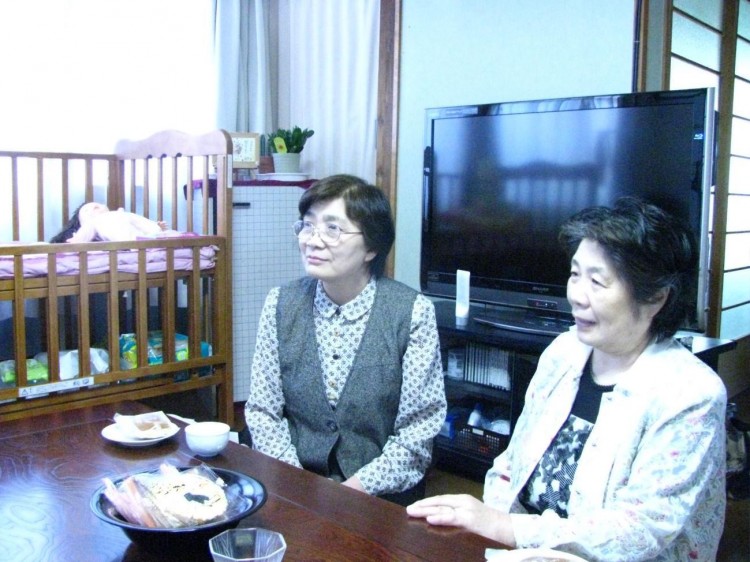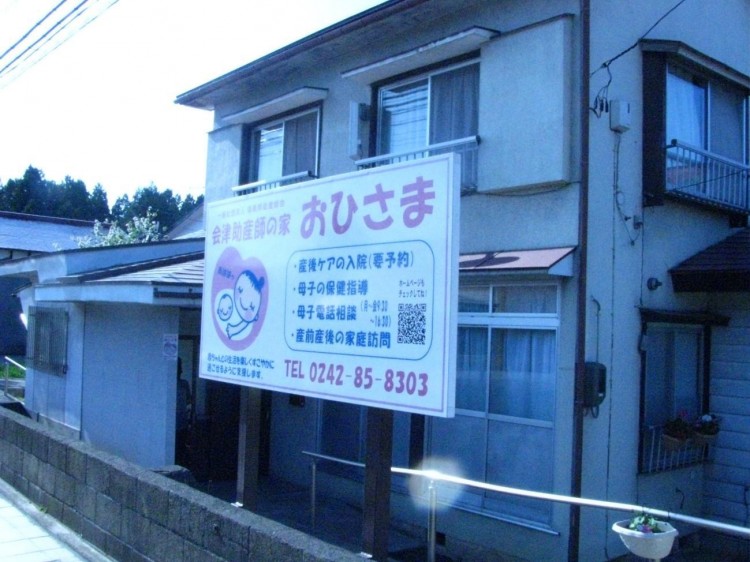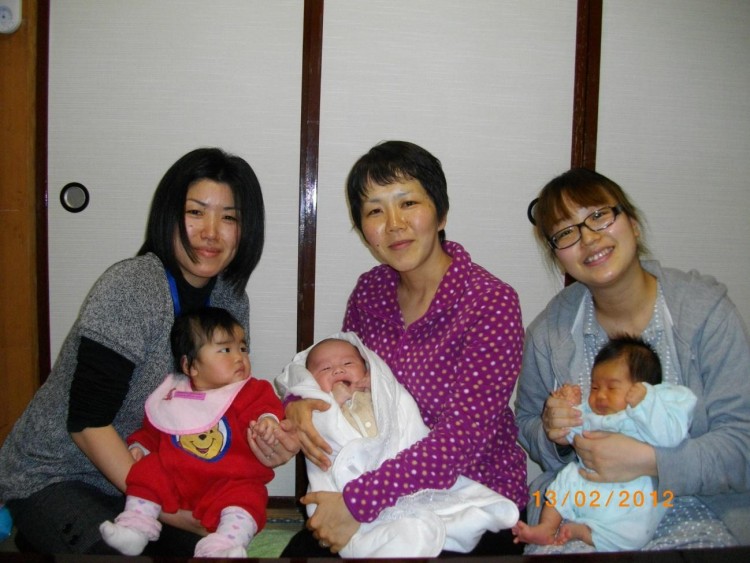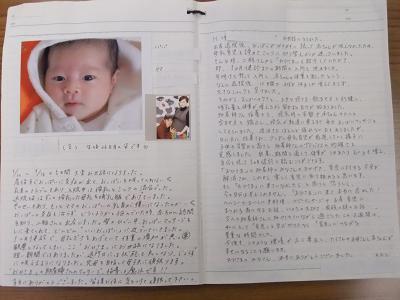The Fukushima Midwives Association and Post-Natal Care at Birthing Centers Takeda Story
Posted on October 18, 2015
After the accident at Fukushima Daichi Nuclear Power Plant, many people were evacuated to places within and outside Fukushima Prefecture. Some of them were pregnant women, mothers and children. Imagine how anxious you would feel if you were looking after a newborn, frightened by the effects of the invisible radiation, and raising your child at a shelter without the help of people you could rely on. It was the midwives in Fukushima Prefecture who gave serious consideration to the needs of the mothers who found themselves in this difficult and extraordinary situation. Following is the story of the Fukushima Midwives Association, which launched activities to provide daily support for mothers affected by the disaster.
 Tokiko Ishida and Ritsuko Nihei
Tokiko Ishida and Ritsuko Nihei
Tackling the issue of post-natal care at birthing centers
 The House of Aizu Josanshi Ohisama
The House of Aizu Josanshi Ohisama
In addition to the anxiety and stress felt after giving birth, many women also have to deal with the worries of raising a child while living as evacuees in an unfamiliar environment, and with the issue of radioactive contamination. The Fukushima Midwives Association supports these women by reducing their mental and physical fatigue and helping with their mental stability, so that they may revive their innate motherhood instincts and encourage the sound development of their children.
What is post-natal care?
The round-the-clock care provided at the birthing centers includes bathing and watching the baby, giving advice on childcare and breastfeeding, and doing things to help the mother recover from mental and physical exhaustion. Tokiko Ishida, representative director of the Fukushima Midwives Association, and Ritsuko Nihei, who is in charge of House of Aizu Josanshi Ohisama, shared that, “the mothers who had looked somewhat anxious when they first came to us regained their smiles day by day.”
Those targeted for care include mothers who have given birth within one year who have been forced to spend the period of time usually needed for immediate post-natal care in temporary housing facilities, mothers who are completely exhausted, body and mind, from raising their child while living in shelters with the fear of radioactive contamination, mothers who are not having success in breastfeeding, and those with strong anxiety about raising their child.
Use of the facility
 Three sets of mothers and babies admitted to the centre at the same time
Three sets of mothers and babies admitted to the centre at the same time
The Fukushima Midwives Association quickly launched House of Aizu Josanshi Ohisama (Inawashiro Town) directly after the disaster as a post-natal care facility, and has also requested the cooperation of two birthing facilities in other towns in the prefecture (Commune with Josanshi (Iwaki City) and Nakajima Josanin (Tajima Town, Minamiaizu County)) to run post-natal care activities. The daily fee is 3,000 yen for a maximum stay of 14 days. From its opening in July 2011 up to the end of May 2013, 77 sets of mothers and children have made use of the facility. The average length of stay is 10.2 days. These mothers have shared that they were easily able to ask for advice anytime about anything (e.g. breastfeeding, how to wash their baby), that they learned how to speak clearly about the problems they were encountering, that their babies were crying less, and that they were able to leave the facility having asked everything they needed to know about the issues that concerned them. Such women leave noticing a difference in the way that they interact with their children, and having regained their ability to smile and confidence in their role as mothers.
The growing need for post-natal care
 Journal entry of woman who stayed at Ohisama
Journal entry of woman who stayed at Ohisama
There is a growing need for post-natal care (overnight or drop in). The social context for this includes mothers’ inability to leave their children with the extended family due to the trend towards nuclear families, or because the grandparents are too elderly to care for them due to later childbearing these days. Ishida of the Midwives Association also pointed out unusual circumstances in Fukushima Prefecture, where although many households used to be comprised of members from three or four generations, these families have now been broken up as a result of the disaster and evacuations, such that the knowledge and experience of childrearing are no longer being communicated well among them.
There is more and more interest across the country in post-natal care under which the mother and child can be provided accommodation, with some local governments developing such programs. For this reason alone, the pioneering activities of the Fukushima Midwives Association in post-natal care, which are being run at the non-governmental level, are garnering great interest.
Stories from the Takeda Life and Livelihood Regeneration Program
JNPOC has received donations from Takeda Pharmaceutical Company Limited to be used for recovery efforts in areas affected by the Great East Japan Earthquake, and is running the Life and Livelihood Regeneration Program, which is broadly divided into the two themes of humanitarian aid and infrastructure development assistance. The program is being carried out mainly in the prefectures of Iwate, Miyagi and Fukushima. Here, the stories of some of the many nonprofit organizations carrying out assistance projects under this program are introduced.
Note: The original reports can be read in Japanese at <http://www.inochi-kurashi.jp/story/>, but some commentary is added here to make the context clearer for our English-speaking readers.
Recent Articles
- Shared solutions, stronger communities: Social economy and social innovation in Europe and Japan
- NPO support for disaster victims: Key discussion points
- Beyond support: Fostering genuine dialogues
- Reconsidering the significance of public comments
- Towards a society where children want to embrace life
- The Evolution of Philanthropy: Five approaches shaping contemporary practice